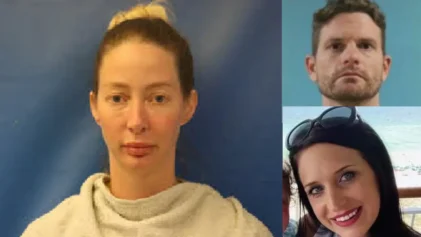COVID-19 survivor James Ross, a St. Louis native, says he will not take the new coronavirus vaccine that arrived in St. Louis, Missouri, on Dec. 14.
“I’m not taking it, if that’s what you are getting to. I don’t want to be a guinea pig and find out 6 months from now that I only got 6 months to live,” said Ross.
The Food and Drug Administration approved the COVID-19 vaccine produced by Pfizer and BioNtech the first week of December, with more than 51,000 vaccinations earmarked for frontline health care workers in St. Louis, the St. Louis Post-Dispatch reported.
While Ross, a musician and videographer known for filming acts like Ashanti and LeAndria Johnson, spent days in St. Louis County DePaul Hospital fighting for his life nine months ago because of the virus, he still says he will not take the vaccine when given the chance.
“The reason is because there has not been enough research for me,” said Ross.
Maine Dartmouth residency program physician Dr. Anita Nwanna disagrees and believes enough research has been done.
“That’s not true,” said Dr. Nwanna. “All the phases of the clinical trials were met. No one is giving you a substandard vaccine.”
Dr. Nwanna has treated dozens of coronavirus patients in the past six months. She received the vaccination on Dec. 16 and says she did not experience any discomfort the first day, but the second day was a little different.
“I felt some muscle aches just around the area where I took the vaccine and some bit of fatigue and then afterward I felt a headache,” said Dr. Nwanna. “But, to be honest, I’m not sure if it was the vaccine or the stress I was going through at the time, because I’m a resident doctor and a mom of a toddler.”
She says things were back to normal on the third day.
Atlanta Black Star asked Dr. Nwanna why she felt it was important to take the vaccine.
“I figure it’s better to get a vaccine that has a 95 percent efficiency than to get COVID from one of my patients.”
She then adds that she was not afraid to take the drug because of her trust in science and the toll she observed the virus take on her patients.
“I had been following the trends, and I had been in contact with people who had the virus, I had treated patients. I had watched patients die from COVID-19, so I had been looking forward to receiving the vaccine.”
In a survey by the Pew Research Center, 42 percent of Black adults said they would get a coronavirus vaccine if asked, compared against 58 percent who said they would not. Dr. Nwanna says she understands why many African-Americans are less inclined to take the vaccine.
“We understand giving our background and everything that’s happened in this country, the fact that African-American population had been marginalized health-wise for so long,” said Dr. Nwanna.
“We understand why people do not trust the public health system in this country. Yes, we know about the syphilis human experiment, and so we understand those are valid, but we’re just saying that the Black physicians in America, we’re trying to be the eyes and ears of people that look like us in the medical world, and we would not encourage you to take a vaccine if we didn’t think it was safe.”
Dr. Nwanna also advises that those who have already had COVID-19 to still get the vaccine.
This explanation was not enough for Ross, who says he still needs more time.
“I just don’t want to do anything that would be detrimental to me down the road because we don’t know and they don’t know, that’s all I’m saying, and please y’all don’t jump down my throat, I’m just a working guy,” Ross said.


